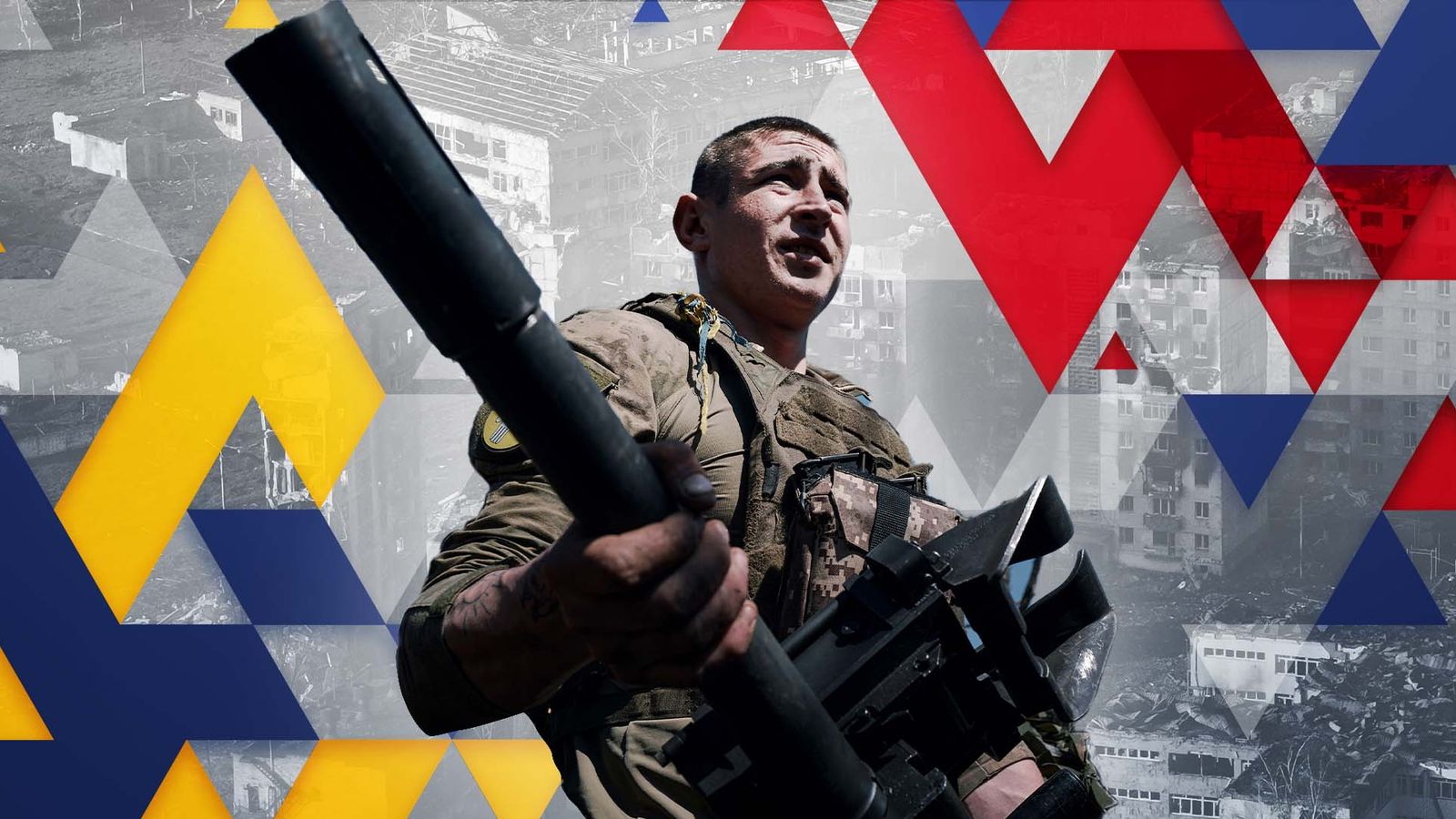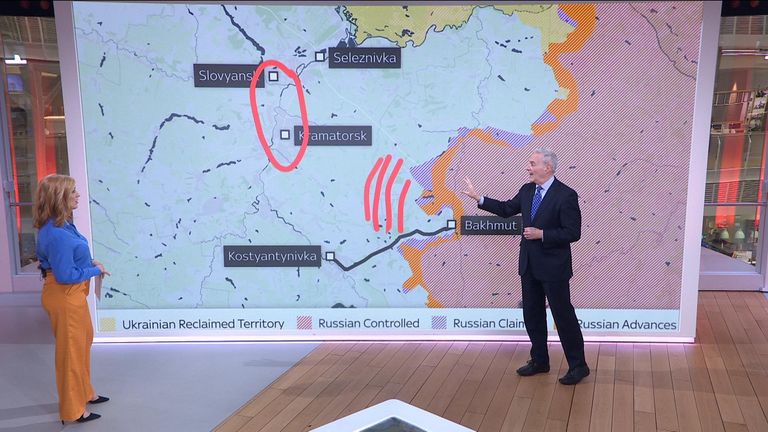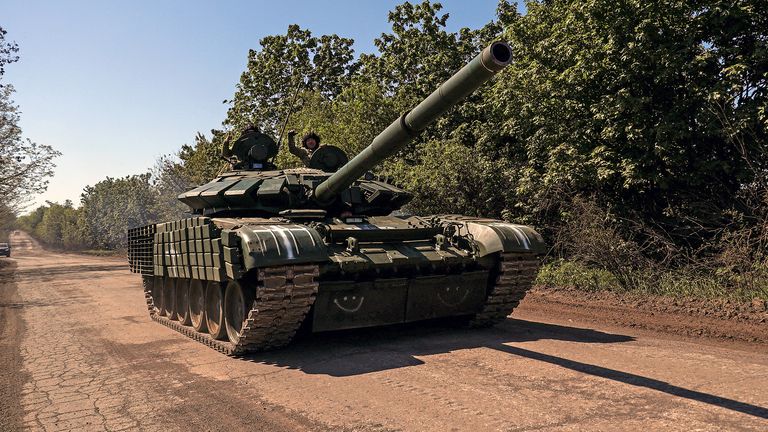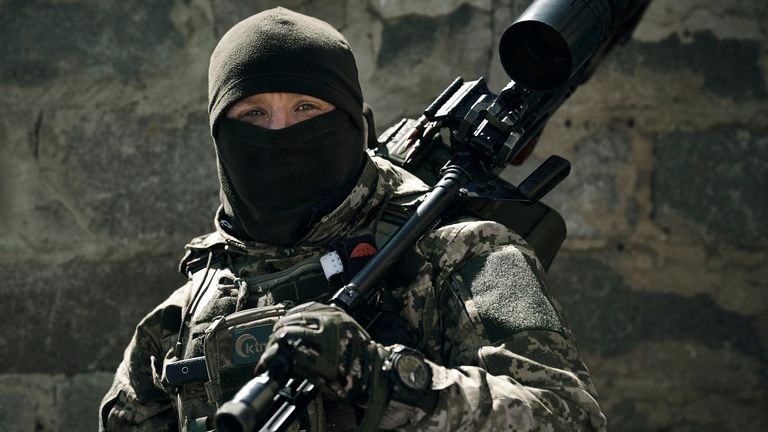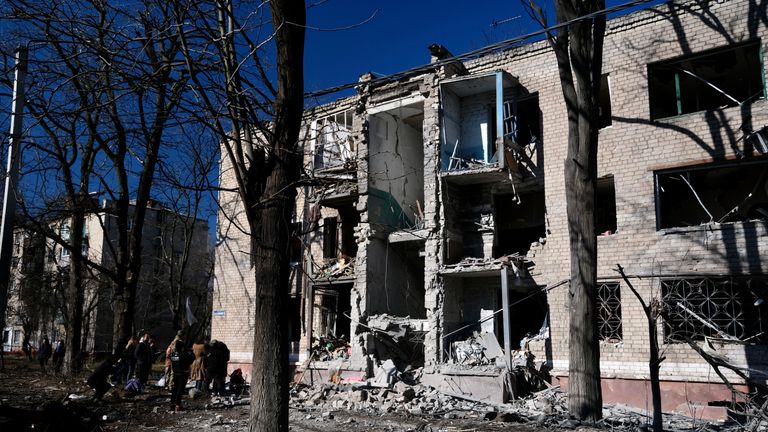Heroic Ukrainian resistance has withstood Russia’s full-frontal attack on Bakhmut for nearly a year – however, at huge cost, both in human life and the devastation of a once-thriving city.
But it has limited strategic value – so why have both sides continued to fight over it? What has all the sacrifice been for, and to what end?
“The tragedy of modern war is that young men die fighting each other instead of their real enemies back home in the capitals” – Edward Abbey.
In the West, politicians decide end-states – the outcome required – and professional military minds develop priorities, strategies and match troops to task.
Ukraine war live – Russia rages at UK over ‘serious escalation’ of long-range missiles to Kyiv
However, in Russia, Presidemt Vladimir Putin is omnipotent; military strategy is subjugated to political meddling, and battlefield tactics are “do what we have always done” – despite the threat – and if that does not work, double-down!
Armies usually make rapid progress across open ground, but urban warfare is difficult.
Russia’s inexperienced and poorly motivated army made very limited progress initially in Bakhmut, suffering up to seven times the casualty rates of the Ukrainian defenders, and Putin became concerned about how human losses might undermine Russian domestic confidence.
The Wagner Group offered Putin an alternative – use “disposable” convicts for the heaviest fighting and save his recently mobilised army for the battles to come.
Yevgeny Prigozin, boss of the Wagner Group, did make slow but steady progress with the Bakhmut assault.
But he was not part of the army chain of command – and growing frictions between General Valery Gerasimov (head of Russian army), Prigozin and Putin, who all had their own non-aligned objectives, escalated to a war of egos.
As a result, Gerasimov prioritised the limited supplies of Russian ammunition to the regular army, thus leaving the mercenaries even more vulnerable and eroding Prigozin’s combat power and influence.
Read more:
Why is Bakhmut so important to Russia and a ‘thorn in the side of Putin’?
What is Ukraine’s new counter-offensive?
Analysis: Ukraine is America’s priority – but for how long?
Ukraine had to avoid getting dragged into a war of attrition in which the larger side (Russia) would – inevitably – win.
Indeed, recently leaked documents show that US Intelligence had been advising Ukraine for months to withdraw (from Bakhmut) and preserve their forces for the forthcoming offensive.
President Volodymyr Zelenskyy‘s view was that Ukraine had no choice but to kill as many Russian combatants as possible whenever the opportunity presented itself – if not in Bakhmut, then where?
The tragedy of Bakhmut is that the battle is not about seizing vital ground – it is about maximising enemy casualties.
The fall of Bakhmut will not bring the end of the war any closer, nor will it have moved the front-line substantially.
Yet over 100,000 Russians and well over 20,000 Ukrainians have – to date – been killed or injured in this grinding war of attrition.
The vast military cemeteries in France are poignant. The combatants in the First and Second World Wars endured unimaginable casualties with minimal movement of frontline; the horrors of which we hoped had now been confined to history.
Less than a century later, the devastation of war has returned to Europe.
In the words of one of the last First World War survivors, Harry Patch: “War is organised murder, and nothing else.”
